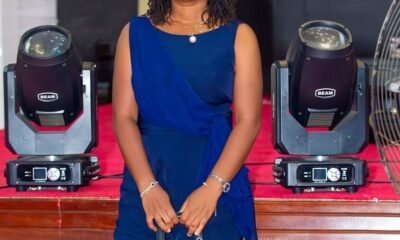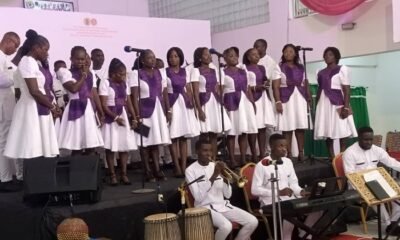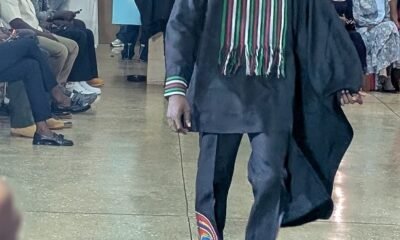Gender
Overcoming breast cancer …Theresa Fakaah’s journey to survival
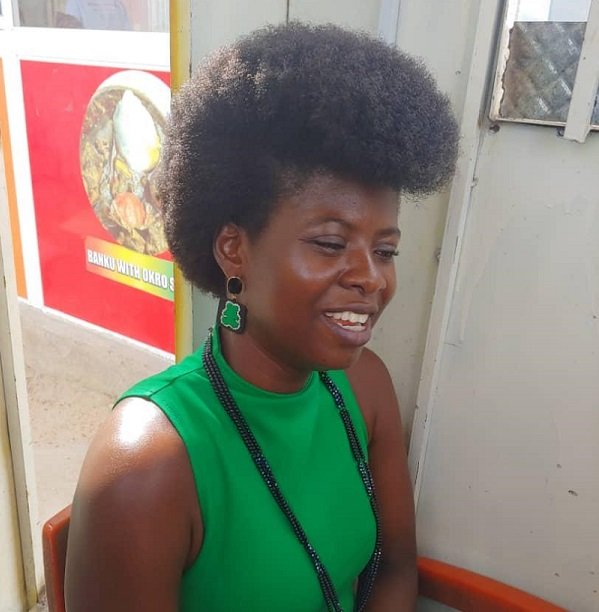
Theresa Fakaah.
At just 33 years, Theresa Fakaah’s world was turned upside down when she was diagnosed with breast cancer at Korle-Bu Teaching Hospital in Accra. Overwhelmed by fear and negativity, she broke down in tears upon hearing the biopsy results.
The doctor’s words echoed in her mind: “The cancer is aggressive; we must remove the affected breast to prevent it from spreading to the other.” The thought of losing a breast, especially at her age and without having children or a partner, was unbearable.
Ms Fakaah’s breast cancer journey started in 2021 when she visited Ga South Municipal with a pain in her breast and was later referred to the Korle-Bu Teaching Hospital.
It was at the hospital that she receive the devastating news of breast cancer that turned her life around.
Desperate for an alternative, Theresa abandoned conventional treatment and sought herbal remedies for three months. However, her condition worsened.
While on herbal treatment, she experienced excruciating pain and discharge from her right breast coupled with sleepless nights.
Returning to Korle-Bu the following year 2022, Theresa began her treatment anew, she went through eight cycles of chemotherapy, surgery to remove the affected breast and received 14 shots of Herceptin in her thigh.
Herceptin is a medication administered through infusion. This targeted therapy helps prevent cancer cells from growing and is commonly used as an adjuvant treatment to prevent recurrence.
Initially, she was scheduled to receive 18 Herceptin injections, however, Ms Fakaah experienced adverse reactions after 14 injections, and her medical team decided to discontinue the treatment with it and suggested another drug.
She said she was neglected by her family when they heard of her condition, advising her to return to the village for cure; a suggestion she refused, hence the rejection.
She was later supported by Toptown Church of Christ, Amanfrom and other individuals which enabled her to go through the treatment.
She encouraged breast cancer patients not to habour fear in them but rather follow the instructions of health professionals in order to ‘fight and conquer’ the disease.
Ms Fakaah’s breast cancer journey, is an indication of the rising number of young women in Ghana being diagnosed with breast cancer, underscoring the urgency for broader public education and awareness.
In Ghana alone, over 2,000 women lose their lives to breast cancer each year, however, health experts believe the number is significantly higher, as many cases remain undiagnosed.
A major barrier to diagnosis and treatment is the cost, with many unable to afford the necessary medical procedures. As a result, countless individuals return home, untreated, only to succumb to the disease.
October is globally recognised as Breast Cancer Awareness Month, dedicated to raising awareness about the disease and promoting early detection.
This year’s global theme for the awareness month is “no one should face breast cancer alone,” with the aim of bringing to attention the silent struggles faced by survivors and patients who may feel isolated and unsupported due to the disease.
The goal of this year’s campaign is to ensure that survivors receive the warmth and support they need while battling with the disease and stigma.
It is therefore important not to pay lip service to the treatment of breast cancer, as many women are continuously suffering from the disease.
It is also important for stakeholders to find ways of lessening the financial and emotional burden of patients and survivors, increase awareness especially among young people, promote healthy lifestyles, improve access to screening and diagnostic facilities as well as enhancing healthcare infrastructure and treatment options.
Theresa’s journey was marked by fear, denial, and determination. Today, she stands as a testament to resilience and courage in the face of adversity
By Jemima Esinam Kuatsinu
Gender
Bravery in the face of fear: The struggle of women at recruitment grounds
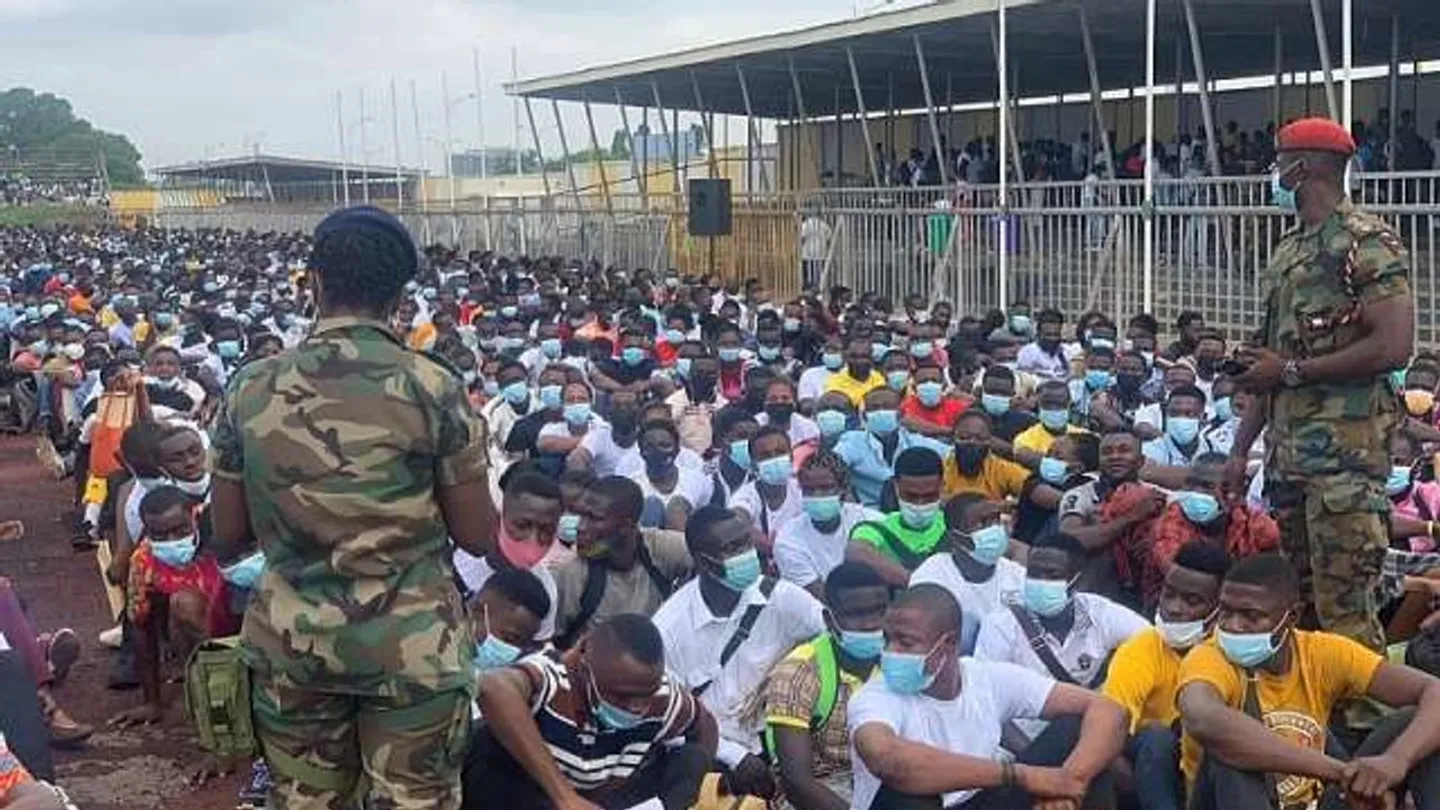
For many young women who gathered at last week’s military recruitment exercise, the day was supposed to mark the beginning of a long-awaited dream built on discipline, sacrifice, and the quiet determination to prove that women too can serve, protect, and rise through the ranks of the Ghana Armed Forces. But that dream was shattered when tragedy struck.
Among the crowd were young women who had travelled from distant towns, some clutching envelopes of documents, others holding on to borrowed hope and borrowed money. Many had always believed that the Ghana Armed Forces was one of the few institutions that did not discriminate against their gender. They joined thousands of hopefuls, standing shoulder-to-shoulder under the burning sun, anticipation tightening their chests.
Yet, for six of these young women, the day ended in the unthinkable. They lost their lives in the stampede at El-Wak Sports Stadium, a devastating blow to families, friends, and the nation. Their deaths have left a permanent scar on the dreams they carried and on the community that watched helplessly as hope collided with chaos.
Women caught in the chaos later recounted how panic surged through the crowd. Some were pushed off balance, others struggled to breathe, and a few held on desperately to friends so they would not be swallowed by the moving wave of bodies. Their voices trembled not only from shock but from the fear they had long carried within—the fear of being unseen, unheard, and unprotected.
Unlike their male counterparts, who often approach recruitment with the boldness society readily grants them, many women arrive at such exercises already battling stereotypes. They must first win the silent argument that they belong there. The tragedy, therefore, did not only claim lives and injuries; it magnified the fears women carry even before they step through the recruitment gates.
For some, the military represented their only escape from unemployment and the frustrations of being a young woman seeking stable work in Ghana. That is why they endured the heat, the long queues, and the packed grounds because the uniform symbolized fairness, dignity, and a chance to rewrite their stories.
As families mourn and survivors nurse their wounds, one truth stands out: women’s aspirations must be protected with the same seriousness afforded their male peers. Their courage to defy gender norms should be met with proper safety measures, clear organisation, and a recruitment environment that does not put them at unnecessary risk.
The tragedy has reminded the nation that behind every applicant is a story of sacrifice, hope, family expectations, and for many women, the desire to claim space in fields traditionally reserved for men. These human stories should guide future reforms, and for that reason, gender-sensitive policies must no longer be an afterthought.
It is against this backdrop that the Ghana Armed Forces (GAF) on Monday announced the resumption of its 2025/2026 recruitment exercise in the Greater Accra Region, following the temporary suspension after the stampede on Wednesday, November 12, at the El-Wak Sports Stadium.
In a statement cited by The Spectator and signed by the Acting Director General of Public Relations, Captain (Ghana Navy) Veronica Adzo Arhin, GAF explained that the reinstated process will now take place across eight sub-centres. These include the El-Wak Stadium and Nicholson Park at Burma Camp, which will each have two centres. The Air Force Base at Burma Camp and the Training and Doctrine Command (TRADOC) at Teshie will also each host two centres, while the Eastern Naval Command in Tema will have one.
To ensure smooth screening and reduce congestion, applicants will report in batches of 600, with each individual receiving an SMS specifying their reporting date, batch number, and designated centre.
Even with the revised measures, one concern remains: women’s safety in crowded public spaces must be intentionally prioritised, not assumed under the banner of military discipline. Clearer communication, structured queuing systems, better crowd control, constant medical presence, and trained crisis responders are not luxuries—they are necessities.
Beyond logistics, there must also be recognition that women’s experiences of fear, vulnerability, and danger differ from men—not because they are weaker, but because society has conditioned the environment to be harsher toward them. For every female applicant to any of the security services, there is a story of resistance against stereotypes, limited opportunities, whispered doubts, and unspoken fears.
These stories must shape the reforms that follow, ensuring that young women can pursue the uniform not with fear, but with confidence and dignity. And as the nation continues to mourn the six young women whose lives were lost, the hope remains that lessons learned from this tragedy will safeguard the dreams of those who step forward next, so their courage is met with the order, protection, and respect it deserves.
By Esinam Jemima Kuatsinu
Join our WhatsApp Channel now!
https://whatsapp.com/channel/0029VbBElzjInlqHhl1aTU27
Gender
Ghana launches first National Non-Communicable Diseases Research Conference
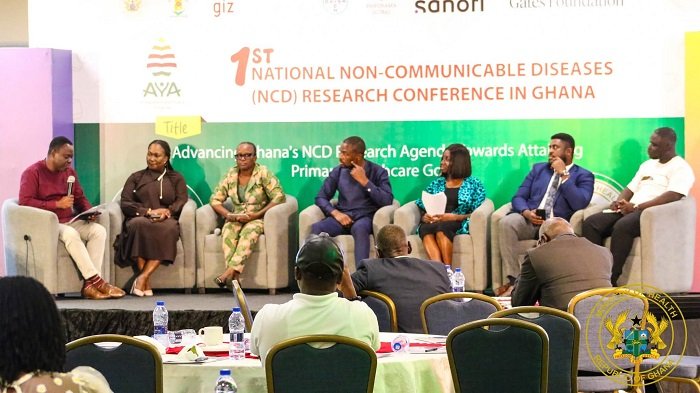
The Ministry of Health, in collaboration with the Ghana Health Service, GIZ, and AYA Integrated Healthcare Initiative, has launched the 1st National Non-Communicable Diseases (NCDs) Research Conference in Ghana, on the theme: Advancing Ghana’s NCDs Research Agenda Towards Attaining Primary Healthcare Goals.
The conference aimed to deliberate on the development of a National NCD Research Agenda for Ghana and to produce evidence briefs to inform policy decisions on NCDs, promote multidisciplinary collaborative research, and guide interventions to strengthen the healthcare system for the prevention and control of NCDs in Ghana.
Dr. Hafez Adam Taher, representing the Minister for Health, Hon. Kwabena Mintah Akandoh, highlighted their shared commitment to strengthening research, improving data quality, and integrating evidence into health policy and primary healthcare practice.
He underscore the conference as an important platform to convert research findings into actionable policy, build a strong network between Ghanaians and International NCD researchers, enhance national policy for data collection and knowledge generation, develop a National NCD Research Agenda that aligns with the sector’s strategic priorities including the Ghana Medical Trust Fund (MahamaCares), free Primary Health Care and the Universal Health Coverage roadmap.
Mr.Akandoh commended the partners, especially GIZ, for their continuous support and acknowledged the dedication of local research institutions in generating the evidence needed to develop contextually appropriate solutions.
He urged them to deepen their collaboration with the Ministry of Health and the Ghana Health Service to ensure that research transcends academic outcomes and becomes the backbone of policymaking.
Dr. Kwame Amponsah Achiano in his delivery on behalf of the Director-General, GHS, Dr. Samuel Kaba Akoriyea, said research can improve NCD care in the country through early detection and clinical health, strengthen health systems and policy and support monitoring, evaluation and accountability.
He concluded that the fight against NCD would be won through knowledge, research that informs practice, transforming systems and saving lives.

